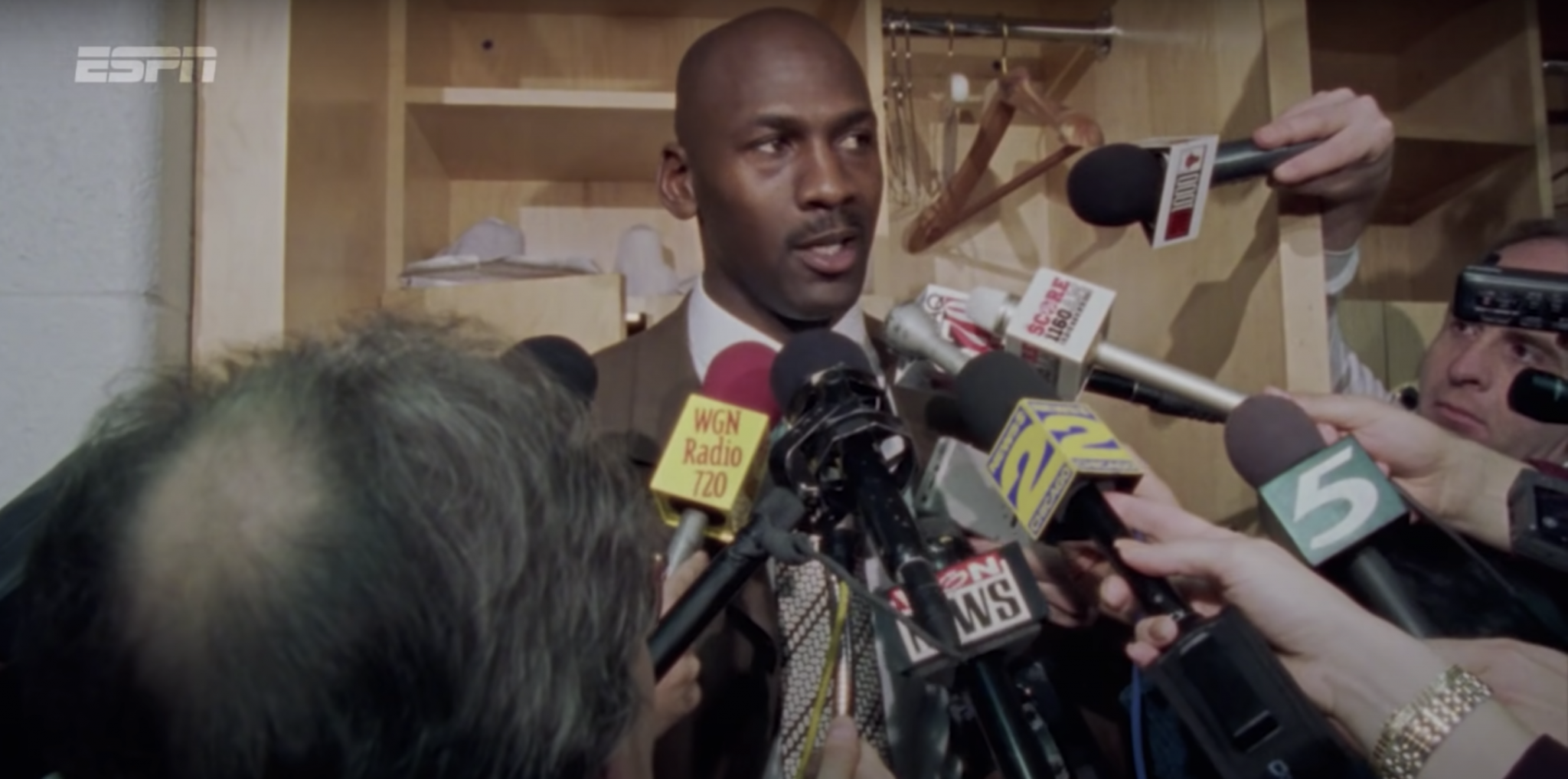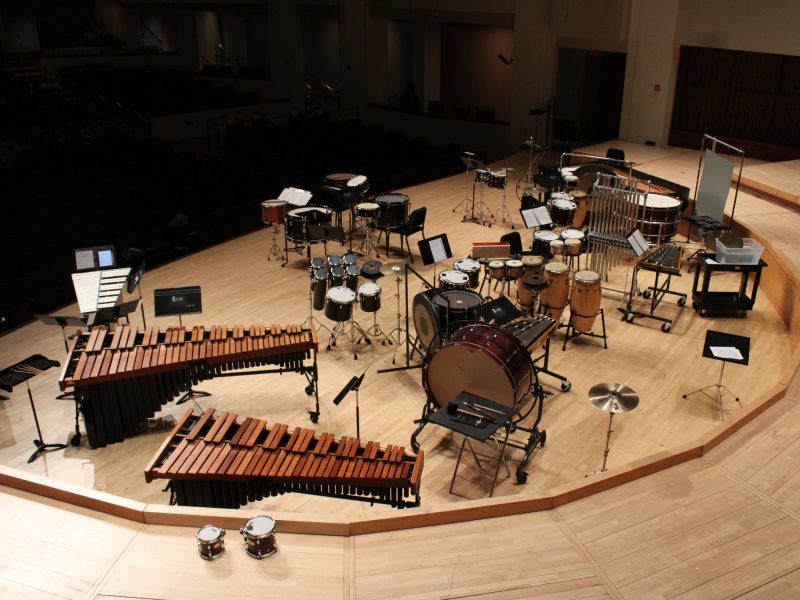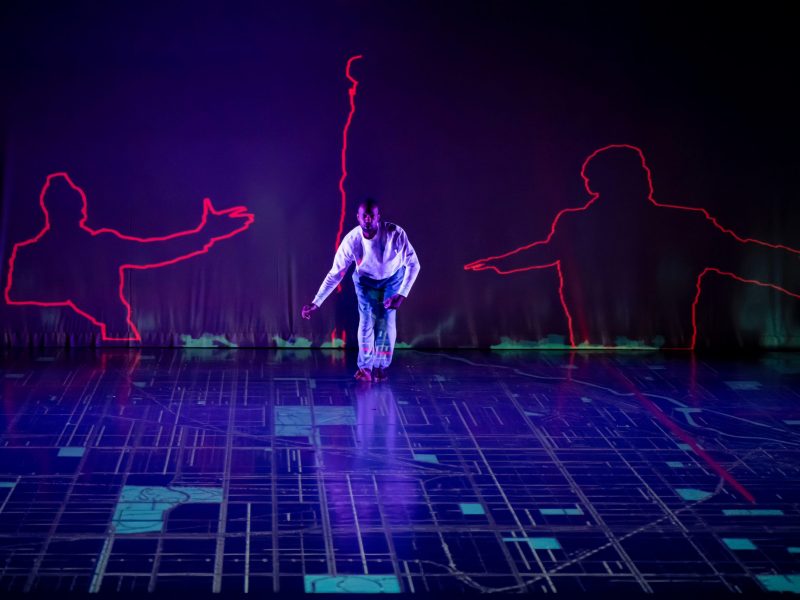The Last Dance is all the rage right now. In the midst of a well-felt absence of live sports in media, ESPN fast-tracked its Michael Jordan video/documentary series to the unsuspecting public, inspiring internet think pieces and reigniting old feuds in the process. Even the patron saint of American documentary filmmaking, Ken Burns, has weighed in on the production’s validity as journalism.
Indeed, The Last Dance isn’t quite reality as it happened. The shades of gray regarding the interactions between coach Phil Jackson, general manager Jerry Krause and players such as Scottie Pippen and Dennis Rodman are ignored in favor of highlighting how all these people fit into the legend of Jordan. Well-known points are still touched upon: Jackson’s Zen philosophies, Krause’s need for control (and willingness to destroy relationships to get it), Pippen’s criminal contract that left him drastically underpaid and Rodman’s wild antics that made him both a weapon and a liability. Their stories get some airtime, but in the end it all comes back to Jordan.
Jordan’s production company, Jump 23, helped produce the docuseries, so Jordan got to influence the narrative of his final season as a Chicago Bull. This means that — among the squabbling coaches and front office figures, Pippen’s mishandling of his injury just to spite the Bulls organization and Rodman’s midseason absconding to Vegas with Carmen Electra — Jordan gets to be viewed as the divine savior of the ‘97-’98 Bulls season, an Atlas-like figure who carries the entire team on his back in his quest toward greatness.
The film includes clips of Jordan single-handedly dragging a less than stellar mid-‘80s Bulls team to victory and playoff contention. He scores 63 points against Larry Bird and the unbeatable Boston Celtics. He bulks up after getting beaten up by the Bad Boys of the Detroit Pistons. He finally ascends to greatness, gets three consecutive rings between 1991 and 1993 and promptly retires before returning and winning three more consecutive rings between 1996 and 1998. Jordan couldn’t have told it better himself — because most of the time it’s him telling the story.
[Read more: An interview with up-and-coming Prince George’s County rapper redveil]
But hold on, a story where Jordan pulls together a talented but scrappy underdog team to win a major basketball game? Where have we heard that before? In Space Jam, of course!
Space Jam came out just as Jordan rejoined the NBA in ‘96, and it acts as a jokey revisionist history of what Jordan was up to during his first retirement. The central conceit of the movie is that it is just utterly ridiculous. Jordan, a highly charismatic non-actor, interacts with green-screened cartoons that are very clearly not in front of him. Some of his fellow players have had their talent stolen, and he must recruit Looney Tunes characters to save them while thwarting an amusement park owner’s plan to … actually, explaining the plot works against the movie’s je ne sais quoi. Like I said, you go in knowing that it’s ridiculous. Criticizing the plot or the cartoon-human interaction feels silly because it’s not meant to be good, it’s meant to be fun.
But it was a canny move to cover up a failed baseball career and an unceremonious early exit from basketball. Jordan had worked with Warner Bros. and director Joe Pytka for a Nike ad a few years before, so when a feature length film was pitched, Jordan saw his opportunity to appear as a dominant figure once more. The production revolved around him — so much so that he got his own basketball court built, separate from the ones used on set. It was this kind of power that Jordan wielded: He may not have written his lines, but he certainly controlled the narrative.
[Read more: Why is the internet so obsessed with Timothée Chalamet?]
Ultimately Jordan and the Tune Squad prevail, because of course they do. Jordan will undoubtedly get his own happy ending in The Last Dance, too. He’s that kind of figure in our collective imaginations: a winner with the skill and story arc that couldn’t lead to anything but victory.
Time has looked back fondly on Space Jam, so much so that a sequel with LeBron James had been rumored for years and finally given an official 2021 release date. The Last Dance — which recently bested Tiger King in terms of popularity — has created a bit of a renaissance for Jordan, but it’s not like he ever really went away. He’s been the G.O.A.T. for years, and nothing has diminished that — not a disappointing second return to the NBA with the Wizards, not a questionable ownership of the perennially-losing Charlotte Hornets, and not hordes and hordes of crying memes. One reason is that he gets to keep replaying his greatest hits from his own perspective at every chance he gets. Space Jam was just the first example of his ubiquity over an entire sport and the cultural relevance he paired with it. The Last Dance is another gift from the House of Jordan to the professional basketball that keeps its legends, specifically his own legends, strong.



